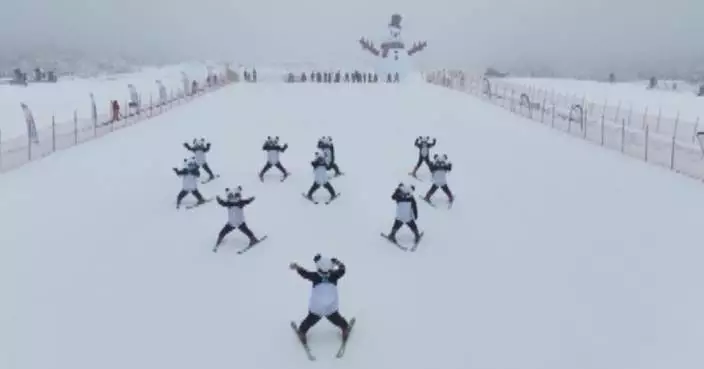A Lebanese speech and language pathologist said she wants to focus on her career and make a greater impact on people's lives in 2025.
Calm has been restored in Beirut and a large number of people previously displaced by the cross-border conflict have returned home in the Lebanese capital, after a ceasefire agreement between Israel and the Hezbollah came into effect on Nov 27.
After all the turmoil, Beirut resident Tia Chaaya shared her wishes for 2025 in a global social media campaign "1,001 Wishes for 2025 #Hello2025" launched by China Global Television Network (CGTN).
"I want to focus on my career and making a better impact in people's life. Also, I want to have a good workout routine and be consistent and stay fit. Additionally, I want to have good relationships with other and focus on my relationships and spend time with people I really love. Finally, I want to slow down and really appreciate the small things in life that really matter," Chaaya said, while also inviting others to join in the campaign.
The CGTN campaign is available in 81 languages.

Lebanese pathologist shares New Year wishes in CGTN's global social media campaign
The deepening political turmoil has taken a serious toll on South Korea's economy as international investors are selling their holds of the country's assets.
According to data from the Korea Exchange released on Saturday, due to President Yoon Suk-yeol's controversial martial law declaration earlier this month, foreign investors rapidly fled the South Korean stock market from December 4 to 20, with net sales of more than three trillion Korean won in 13 trading days.
On December 4 alone, the first trading day after the martial law, foreign capital net sales reached 40.79 billion Korean won.
In the foreign exchange market, the Korean won also suffered from continuous selling. At the close of trading on Tuesday, the Korean won had depreciated to 1,456.4 per U.S. dollar.
South Korea's political turmoil has also impacted the country's real economy.
According to a survey from the Korea Federation of Small and Medium Business (KBIZ), 46.9 percent of the restaurants and hotels surveyed saw sudden cancellation of year-end event orders or other types of losses after the martial law was declared on Dec. 3. Among the companies that were not directly affected by the political turmoil , 46.6 percent expressed their worries on their future operations.
"The situation has turned worse after the president was impeached. It is the president who created this mess. The economy is now at the bottom. No foreign tourists come, and even local customers don't come at all," said Kim Jae-joo, owner of a restaurant in South Korea.
According to another survey from the KBIZ, 26.3 percent of the surveyed small and medium-sized export companies suffered economic losses due to the political turmoil, and 63.5 percent of the surveyed companies are worried that their future export would be impacted.

Deepening Political turmoil takes serious toll on South Korea's economy










